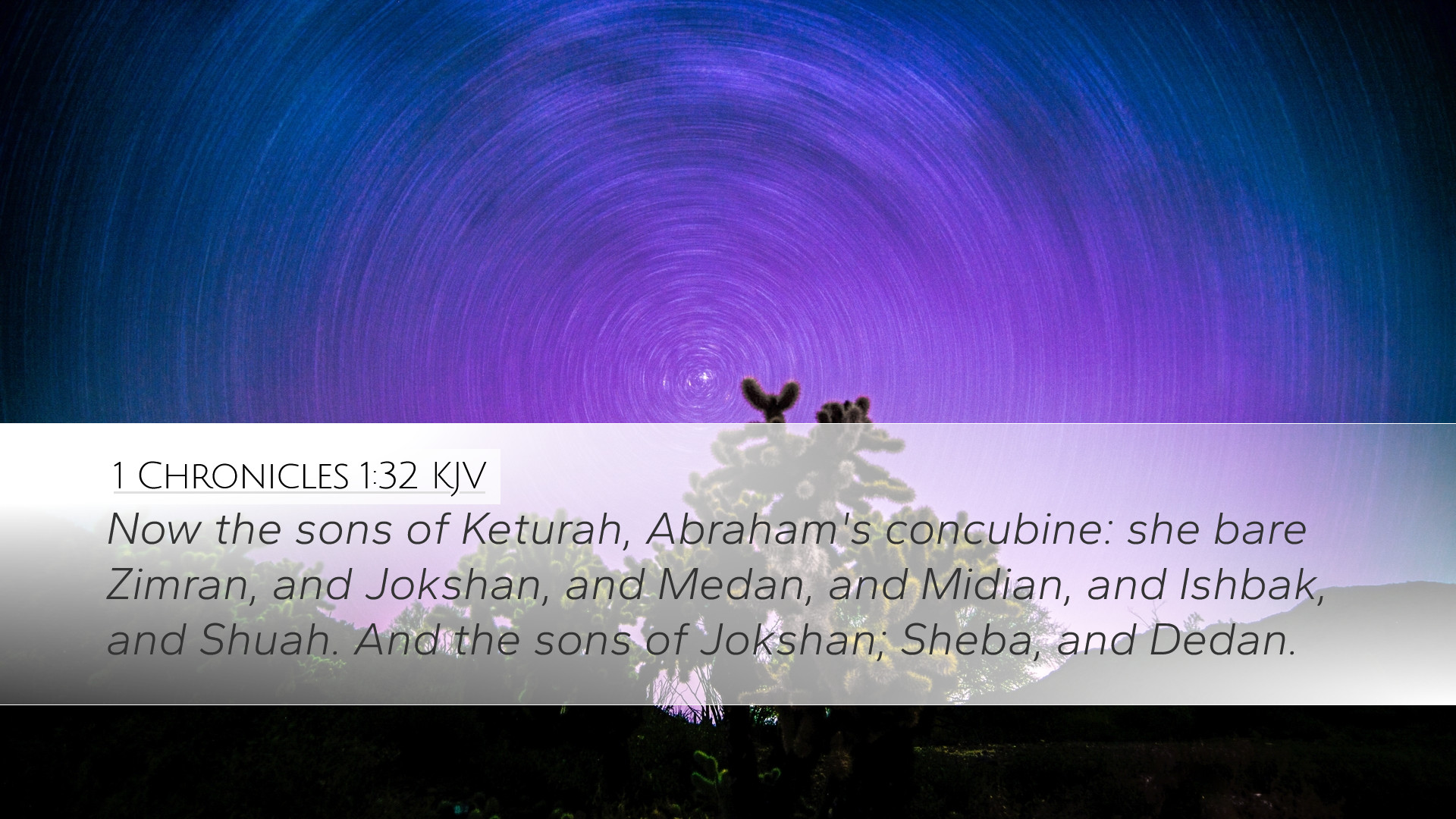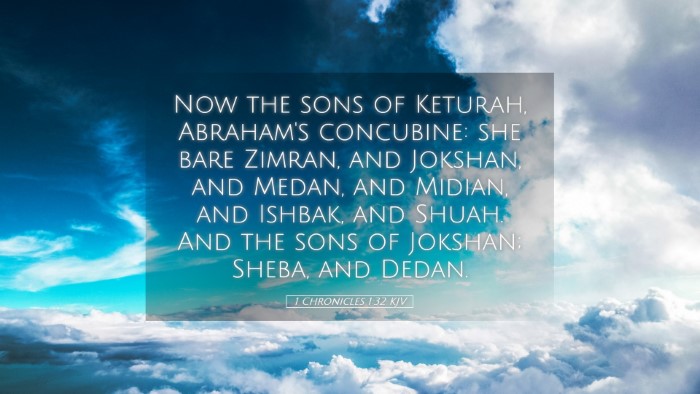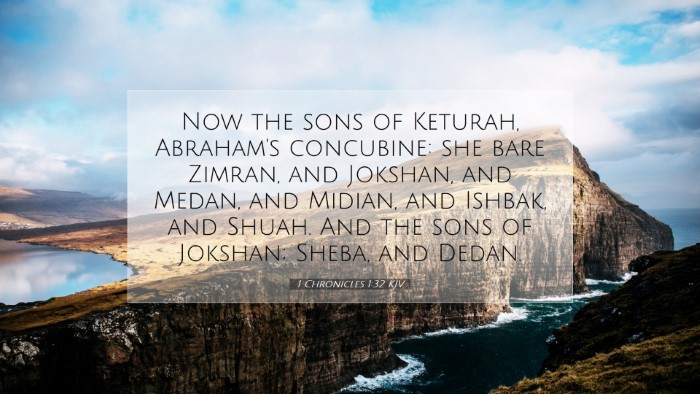Commentary on 1 Chronicles 1:32
1 Chronicles 1:32 states: "The sons of Katurah, Abraham's concubine, She bore Zimran, Jokshan, Medan, Midian, Ishbak, and Shuah." This verse highlights the lineage of Abraham through Keturah, his wife after Sarah's death. It serves as a continuation of the genealogical record established in the Book of Chronicles.
Context and Significance
The genealogical accounts in 1 Chronicles seek to illustrate God's covenant with Abraham and the eventual blessing of nations that would arise from his descendants. This particular verse provides insight into the lesser-known lineage connected to Abraham via Keturah.
Insights from Matthew Henry
Matthew Henry emphasizes the importance of Keturah in the narrative of Abraham’s life. He notes:
- Abraham’s Fruitfulness: Keturah’s sons represent the continued fruitfulness of Abraham. Even in his later years, God blessed him with children, indicating His faithfulness to Abraham's line.
- God’s Broader Plan: Henry reflects on how these verses illustrate God's plan unfolds, even beyond the direct line of Isaac and Jacob, underscoring the inclusiveness of God's covenant.
- Types and Shadows: The sons of Keturah may be viewed typologically, representing nations that would come to play significant roles in biblical history, such as the Midianites, who intersect with Israel’s story.
Insights from Albert Barnes
Albert Barnes offers a detailed examination of each name mentioned:
- Zimran: Identified as a founder of a tribe, possibly associated with regions in Arabia.
- Jokshan: Barnes suggests a connection to the location of the descendants that would influence later generations.
- Medan: Noted for its possible connection to trade and commerce in the ancient world.
- Midian: The most renowned of Keturah's sons, with the Midianites known for their nomadic lifestyle and interactions with Israel.
- Ishbak: Less is known, but his mention indicates that God continued to fulfill His promise of numerous offspring.
- Shuah: Potentially indicative of another tribe that settled in areas significant to biblical events.
Insights from Adam Clarke
Adam Clarke adds a theological lens concerning the implications of Keturah’s lineage:
- Covenantal Continuity: Clarke points out that God’s covenant was not restricted to Isaac alone, but extended to multiple nations, allowing for a widening of the scope of divine blessing.
- The Role of Concubines in Biblical Narratives: Keturah’s status as a concubine, rather than a full wife, raises discussions about social structures and divine favor in biblical contexts.
- Geographical Implications: Clarke delves into the geographic spread of these descendants, mapping their potential influence and the importance of the Arabian Peninsula in the biblical narrative.
Theological Implications
1 Chronicles 1:32 serves as a reminder of God's faithfulness in fulfilling His promises not only to Israel but to the entire world. This verse invites theological reflections on:
- The Nature of God's Covenant: The notion that God engages with multiple people groups and nations.
- Inclusiveness vs. Exclusiveness: A call to Christian communities to recognize the breadth of God’s love and engagement with humanity.
- Identity and Lineage: Understanding our spiritual heritage and identity in Christ, as descendants of Abraham through faith rather than bloodlines.
Conclusion
1 Chronicles 1:32 offers a rich tapestry of insights concerning genealogy, covenant theology, and the unfolding of God's plans through various lineages. The analysis of Keturah's sons provides depth to our understanding of biblical narratives and encourages a broader view of God's redemptive intentions for all humanity.


